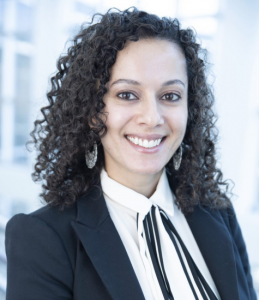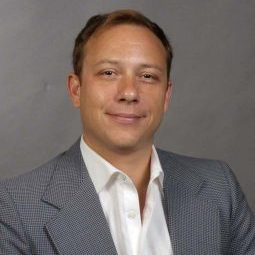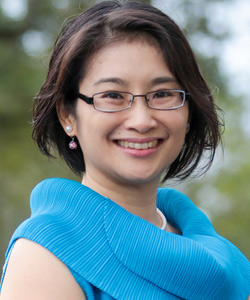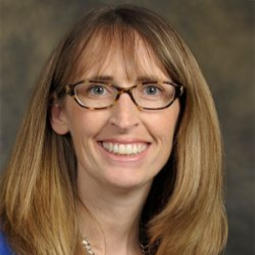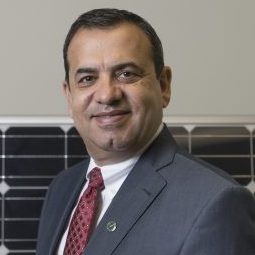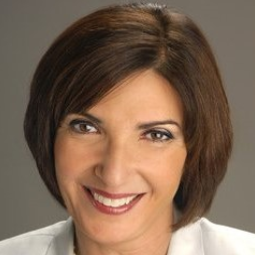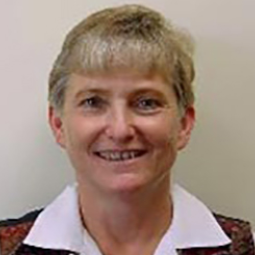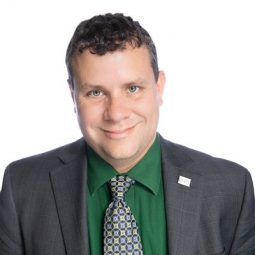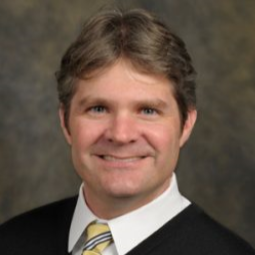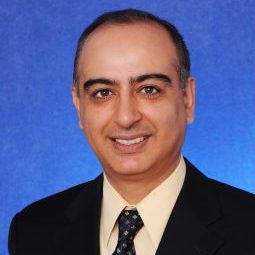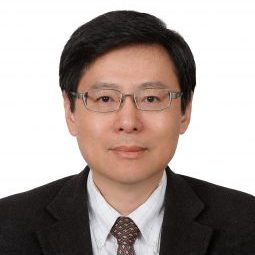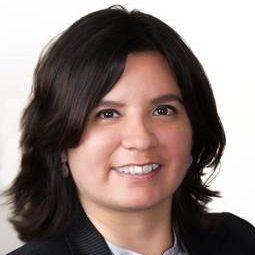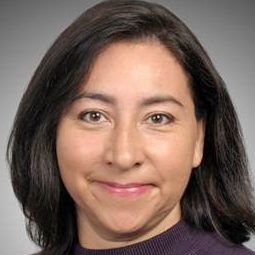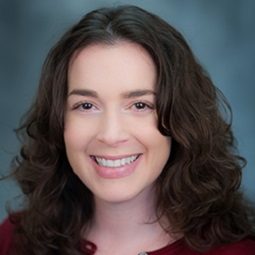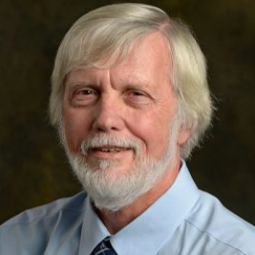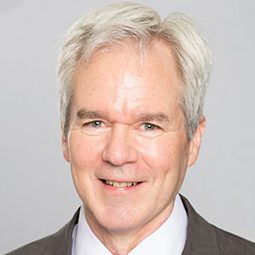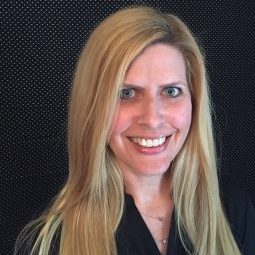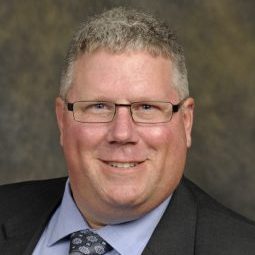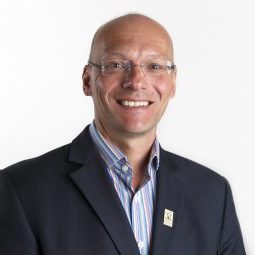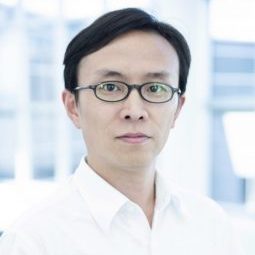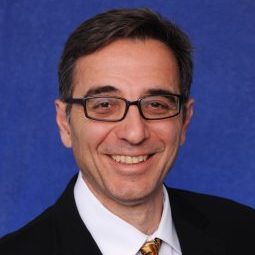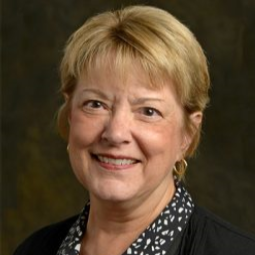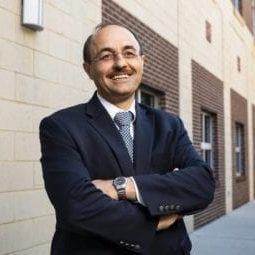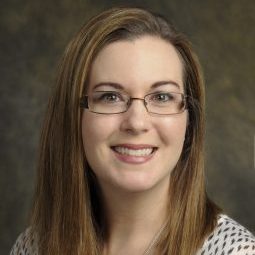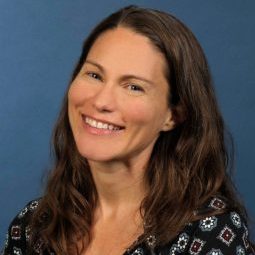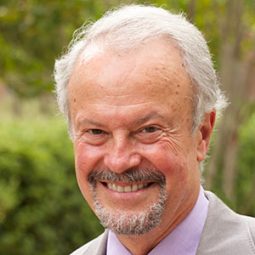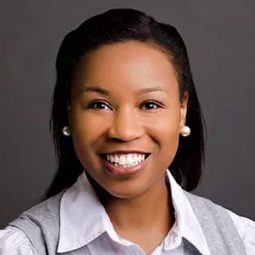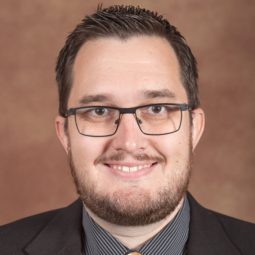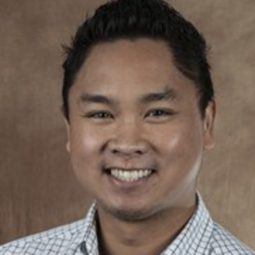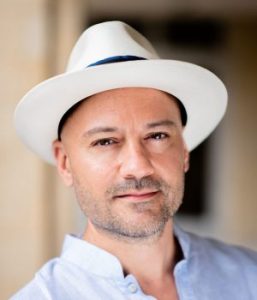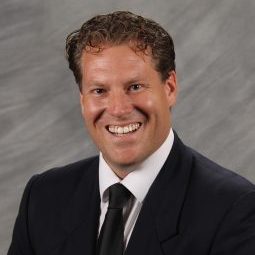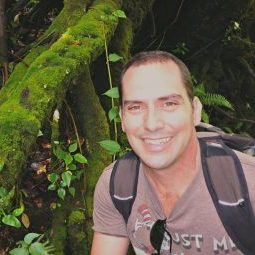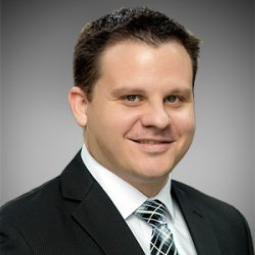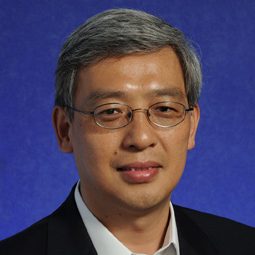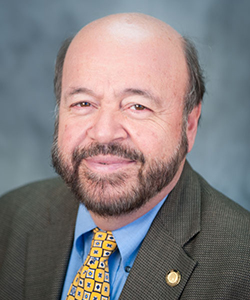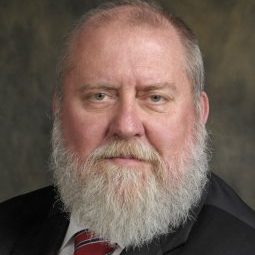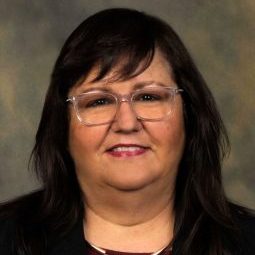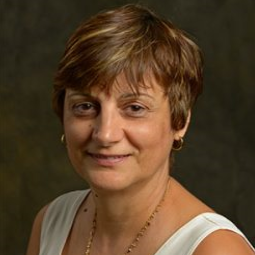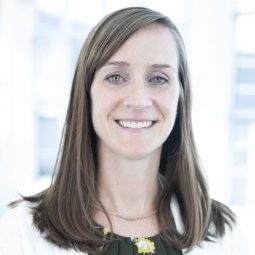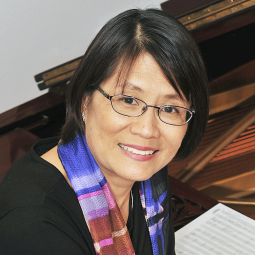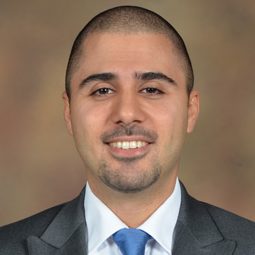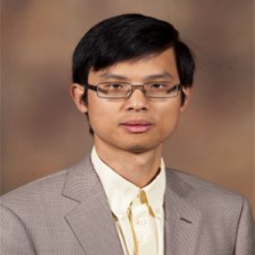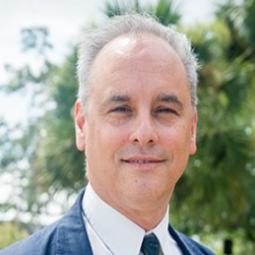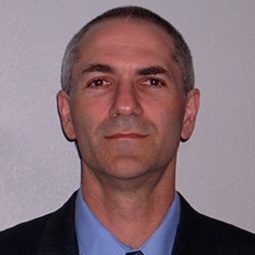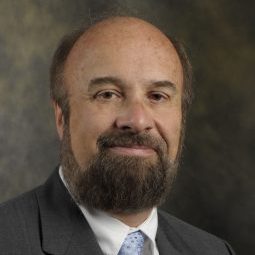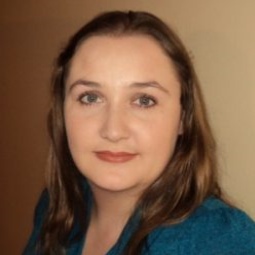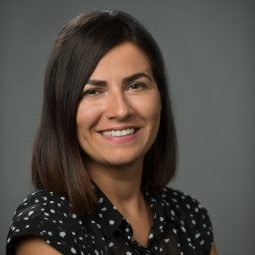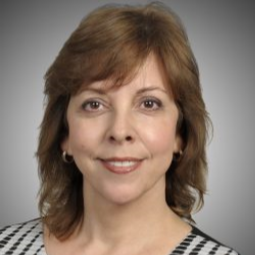Yara M. Asi, Ph.D.
Yara M. Asi, PhD, is an Assistant Professor at the University of Central Florida in the School of Global Health Management and Informatics. She is a Non-resident Fellow at the Arab Center Washington DC and a 2020-2021 Fulbright US Scholar to the West Bank. She has presented at multiple national and international conferences on topics related to global health, food security, health informatics, and women in healthcare, and has published extensively on health and well-being in fragile and conflict-affected populations in journal articles and book chapters. Her work has also been featured in The Washington Post, The Guardian, The Nation, +972 Magazine, The Conversation, Al Jazeera, The World, and other outlets. Her forthcoming book with Johns Hopkins University Press will examine war as a public health crisis.
Jacopo Baggio, Ph.D.
Jacopo Baggio is an Assistant Professor in the College of Science, School of Politics, Security and International Affairs and a core member of the Sustainable Coastal Systems Cluster and National Center for Integrated Coastal Research. His current research focuses on analyzing and modeling the interdependencies between human systems and the environment as well as understanding the emergence and persistence of collective action that increases the sustainable use of resources. His work thus focuses on the sustainable development goals.
Su-I Hou, Dr.P.H., C.P.H., M.C.H.E.S., R.N.
Su-I Hou is Professor and Founding Director of the School of Global Health Management and Informatics, College of Community Innovation & Education (CCIE) at the University of Central Florida, Orlando, FL. She also serves as the Health-track liaison for the college’s interdisciplinary Doctoral Program in Public Affairs, and the Founding Director of UCF’s Taiwan Study Abroad Program on Asian Culture, Healthcare, & Aging Society. She is a Fulbright Specialist (2019-2024) and has been invited to conduct mixed-methods research (MMR) training workshops at multiple universities overseas. Hou was a key founding faculty member of the College of Public Health and served as its inaugural DrPH Program Director, and the founding director of the Taiwan Public Health Study Abroad Program at the University of Georgia (UGA), Athens, GA. She received both of her DrPH and MPH from the University of Texas Health Science Center at Houston and served as an Associate Editor (2009-2015) for the
Health Promotion Practice, Society of Public Health Education’s official journal devoted to the practical application of health promotion and education. Hou is a recognized service-learning scholar by the Community-Campus Partnership for Health, and an inaugural service-learning senior scholar and recipient of the
service-learning research excellence award at UGA.
.
Sarah Barber, Ph.D.
Sarah Barber, Ph.D., is an associate professor specializing in the archaeology of Mesoamerica. The central goal of her research is to understand the various processes that enabled and constrained early political centralization. She focuses particularly on the ways that religion and long-distance economic interaction have shaped early complex societies in Oaxaca in southern Mexico. Her research has included geospatial modeling of trade routes, music archaeology, geophysical remote sensing and broader examinations of political change in ancient Oaxaca. Her work supports Goals 4 and 11.
Issa Batarseh, Ph.D.
Issa Batarseh, Ph.D., is a professor in the Department of Electrical and Computer Engineering at UCF. His research focuses on the development of advanced systems for solar energy conversion to improve cost, power density, efficiency and performance. The research includes the analysis and design of high frequency dc-ac inverters, resonant converter topologies; low-voltage dc-dc converters, small signal modeling and control of PWM and resonant converters. He has founded two start-up companies involved with solar energy conversion, Advanced Power Electronics Corp. and Petra Systems, and is an inventor with 36 patents to his name. His work supports Goal 7.
Deborah C. Beidel, Ph.D.
Deborah C. Beidel is Pegasus Professor of Psychology and Medical Education and Director of UCF RESTORES at the University of Central Florida. Her recent work focuses on utilizing technology to translate and disseminate efficacious treatments for anxiety disorders and post-traumatic stress disorder into standard clinical practice. Currently, she is the principal investigator of a research program conducting treatment of combat-related posttraumatic stress disorders, a research program examining familial stress during military deployment and a trial to develop artificially intelligent avatars to assist in the treatment of children with social anxiety disorders. Along with her colleague, Clint Bowers, Ph.D, she is developing a new multi-disciplinary center devoted to using technology to enhance and disseminate empirically supported treatments for anxiety, stress and trauma-related disorders. Her work supports Goal 3.
Karen L. Biraimah, Ph.D.
Karen Biraimah, Ph.D., is assistant professor in the Department of Educational Foundations at UCF. Her research interests include the relationship of gender and class to educational opportunities and ultimate life chances, with special emphasis on patterns of gender differentiation from within the schools of West Africa. She taught secondary school in Ghana as a Peace Corps volunteer, and later lectured in the Faculty of Education, University of Ife, Nigeria. Her work supports Goal 4.
Thomas A. Bryer, Ph.D.
Dr. Thomas Bryer is Professor in the School of Public Administration and Doctoral Program in Public Affairs, College of Community Innovation and Education. He is also Professor and Chief Researcher at Kaunas University of Technology in Lithuania and Visiting Professor in the Institute for Public Policy and Professional Practice at Edge Hill University in United Kingdom. Additionally, he is a Fulbright Scholar and Specialist, having worked in Lithuania and Russia. His research focuses on citizen participation and the design of institutions across sectors for effective public involvement. He is the author or editor of four books, most recently
Poor Participation: Fighting the Wars on Poverty and Impoverished Citizenship. See
https://rowman.com/ISBN/9781498538930/Poor-Participation-Fighting-the-Wars-on-Poverty-and-Impoverished-Citizenship. His work focuses on sustainable development goals 1, 10, and 16.
Michael Callaghan, Ph.D.
Michael Callaghan, Ph.D., is an anthropological archaeologist who studies Pre-Columbian Mesoamerican societies in an effort to understand the origins of social complexity. His research focuses on the emergence of complexity as it relates to community ritual, social inequality, craft specialization and long distance exchange. Callaghan specializes in the study of the ancient Maya with an emphasis on ceramic analysis. He is interested in how ceramic technology, the organization of production systems, and exchange of ceramic vessels contributed to the growth of social complexity. His work supports Goals 4 and 11.
Necati Catbas, Ph.D.
Necati Catbas, Ph.D., is an educator and a researcher currently serving as a full professor at UCF. Catbas has several publications and research projects on the development, integration and implementation of sensing, information, modeling and simulation technologies, parametric and nonparametric structural identification, image-based technologies for structures such as bridges, buildings, aerospace structures and components, lifelines and stadium structures. He and his team focus on theoretical, experimental and applied aspects of structural identification, structural health monitoring, nondestructive evaluation and condition assessment of structural systems. His work supports Goal 9.
Ni-Bin Chang, Ph.D.
Ni-Bin Chang is a Professor in the College of Engineering and Computer Science, and the director of UCF’s Stormwater Management Academy. His research focuses on sustainable engineering and sustainability science with highly interdisciplinary approaches. Recent endeavor includes integrating sensing, monitoring, and modeling for decision support as well as developing green and smart food-energy-water infrastructure for promoting urban sustainability. His work focuses on sustainable development goals from 6-17 in support of social, environmental, and economic sustainability.
Caroline S. Cheong, Ph.D.
Caroline Cheong’s research and professional work focuses on ways in which public, private and nonprofit sectors can capitalize upon urban heritage conservation to improve quality of life for low-income communities in Global South countries. Her work draws upon historic preservation, public history, city planning, international development planning and community and economic development approaches, emphasizing SDGs 11 and 1.
Maritza Concha, Ph.D.
Maritza Concha holds a PhD in Public Affairs with a Concentration in Public Administration from University of Central Florida, a Master’s degree in Latin American Studies at the University of Miami and a Bachelor’s degree in International Relations at Florida International University. For the past 15 years, Dr. Concha has been working as an evaluator for local non-profits, serving Latino/a immigrants. Her other areas of interest are service partnerships and evaluating projects that serve at risk populations such as victims of human trafficking, refugees, and low income minorities. Dr. Concha is also an Adjunct Professor at University of Central Florida where she teaches graduate and undergraduate courses on nonprofit administration, program evaluation and research methods. Lastly, Dr. Concha has published her research and evaluation studies in peer review journals such as the Journal of Immigrant and Minority Health, Hispanic Journal of Behavioral Sciences, Journal of Community Practice and International Journal of Public Administration. Her work supports goals 10 and 13.
Annabelle Conroy
Annabelle Conroy is a Visiting Lecturer in the School of Politics, Security and International Affairs. She is a Fulbright Scholar, having received a Fulbright Lecturing and Research grant for Bolivia during the period 2011-2013. The Fulbright grant required her to prepare higher education faculty to teach online courses in order to expand access to higher education. Her research focuses on policy innovation at the subnational level of government, social movements and the role of indigenous communities in environmental conservation. At UCF her courses include Comparative Public Policy, Women, Gender and Globalization, Global Drug Policy and Latino Politics. She has taught in universities in Great Britain and the United States. Her research supports SDGs 1, 4, 5, 10, 16 and 17.
Karen Z. Consalo, J.D.
Karen Z. Consalo, J.D., Esquire, is a Lecturer with the Legal Studies Department at Central Florida. Her research focuses primarily on the water crisis, including pollution and overuse of fresh water supplies, as well as property and government issues. She teaches environmental law, property law, and Legal Studies Capstone courses at UCF. She is enrolled in an L.L.M. in International Business Law with a concentration in Energy and Environmental Law from the University of Boston School of Law. Her work focuses on U.N. Sustainable Development goals 6, 7, 11 and 14.
Harold Corzine, Ph.D.
Harold “Jay” Corzine, Ph.D., is a professor and the graduate director of UCF’s sociology department. His primary research area is homicide and violent crime. His other research specializations include substance use, urban problems and policy issues related to law enforcement and crime control. Corzine is an invited member of the Futures Working Group, sponsored by the FBI and Police Futures International, and a guest lecturer for the Behavioral Science Unit of the FBI. He is currently the president of the Homicide Research Working Group. His work supports Goal 16.
Mark Dickie
Mark Dickie, Ph.D., is a professor of economics at UCF. His major fields are environmental economics and health economics. His research focuses on estimating economic benefits of reducing risks to human health; understanding how people perceive health risks; and examining the determinants and effects of behaviors that influence the health risks people experience. His work has been funded by the US Environmental Protection Agency. Dickie served for six years on EPA’s Children’s Health Protection Advisory Committee. His work supports Goal 3.
Amy Donley
Dr. Amy Donley is an Associate Professor in the Department of Sociology and the Director of the UCF Institute for Social and Behavioral Sciences. She is an applied sociologist whose research primarily focuses on social inequalities, specifically food insecurity, urban poverty, and homelessness. She regularly conducts research in partnership with local governments and not-for-profit agencies in the Central Florida region and serves on the Board of Directors for several agencies including the Coalition for the Homelessness, Homeless Services Network, and Table Sixty. She teaches several courses including Research Methods, Program Design and Evaluation, Urban Society, and Race, Class, and Gender in America. Her work supports SDGs 1, 2 ,3, and 8.
David Dumke
An experienced Middle East specialist, David Dumke writes regular columns for both Al Ahram Weekly and Saudi Gazette. He has worked on regional projects in a number of fields, including politics, business and academia. He also brings a background in entrepreneurship, having established numerous firms serving specific needs, whose clients, partners and collaborators include governments, NGOs, business organizations and private-sector entities. Dumke serves as the Director of the Office of Global Perspectives and International Initiatives and Director of the Prince Mohammad Bin Fahd Program for Strategic Research and Studies. His work is related to SDGs 2, 6, 7 and 11.
Christopher Emrich, Ph.D.
Christopher Emrich, Ph.D., is an associate professor of environmental science and public administration within the School of Public Administration, and a founding member of the newly formed National Center for Integrated Coastal Research at UCF (UCF Coastal). His research interests include the application of geospatial web-based technologies to emergency management planning and practice, long term recovery from disaster and the intersection of social vulnerability and community resilience in the face of disaster. Emrich is a strong advocate of the transition of knowledge from academia and research into real-world applications. He has been a key player in the development of theory, data, metrics, methods, applications and spatial analytical models for understanding the newly emergent field of hazard vulnerability science and the often very different pattern of disaster recovery across communities. His work supports Goals 9 and 11.
Alan Fyall, Ph.D.
Dr. Alan Fyall is Orange County Endowed Professor of Tourism Marketing and Graduate Programs’ Director at the Rosen College of Hospitality Management, University of Central Florida, and is a member of UCF’s National Center for Integrated Coastal Research. Alan currently teaches International Tourism Management and Destination Marketing & Management. He is Editor of Elsevier’s Journal of Destination Marketing & Management and sits on the editorial boards of many leading journals. He has published widely in the areas of tourism and destination marketing and management including 22 books. Dr. Fyall is a former Member of the Bournemouth Tourism Management Board (DMO) and Board of Solent Synergy Limited in Southern England, and has conducted numerous consulting and applied research projects for clients in the UK, European Union, Africa, the Caribbean, USA, Central and South America, and South East Asia. His current research interests relate to smart and sustainable tourism and destination resilience in Florida, the Caribbean and South East Asia. His work supports SDGs 8, 9, and 11.
Yue ‘Gurt’ Ge, Ph.D.
Gurt Ge is an Assistant Professor in the School of Public Administration, and a Faculty Co-Lead of the Urban Resilience Initiative at UCF Downtown. He is an interdisciplinary scholar of risk and resilience management in the context of hazards and disasters. His research projects include resilience management through networked communities and cross-sector partnerships, information uncertainty in hurricane evacuation decision making, interdisciplinary methods of disaster response research, data synthesis in public health crisis management, socioeconomic impacts of satellite-enhanced snowmelt flood forecasts, and land use tools for environmental hazard mitigation. His work supports SDGs 3, 7, 8, 9, 10, 11, 13, and 17.
Michael Georgiopoulos, Ph.D.
Michael Georgiopoulos, Ph.D., is a professor in the Department of Electrical Engineering and Computer Science at UCF, and currently serves as the dean. His research interests span various paradigms and applications of machine learning, like artificial neural networks, decision trees, kernel-based methods, evolutionary computation and data mining. He emphasizes algorithms that perform intelligently, effectively and efficiently when completing challenging tasks. His work supports Goal 9.
Kerstin Hamann, Ph.D.
Kerstin Hamann is Pegasus Professor and former Chair of the School of Politics, Security and International Affairs. Her research focuses on the role of organized labor in democratic politics and, with a focus on Western Europe, and on Spanish politics. Her second area of research is within the Scholarship of Teaching and Learning, where she focuses on teaching and learning in the online environment. Her work supports sustainable development goals 4, 8 and 10.
Lin Huff-Corzine, Ph.D.
Lin Huff-Corzine, Ph.D., is a professor in the Department of Sociology at UCF. Her research focuses on violent crime with articles published on topics such as mass murder, the effects of drug transportation routes on homicide and robbery, firearm lethality, risk factors associated with assaults on police officers, the spatial distribution of sexual assaults and the impact of medical resources on lethal violence rates in cities. Huff-Corzine currently serves as the vice president of the Homicide Research Working Group. More recently, she was one of two UCF faculty to serve on the Orange County Sheriff’s 2016 taskforce on violent crime. Her work supports Goal 16.
Peter Jacques, Ph.D.
Peter Jacques is a Professor of Political Science and affiliate faculty of UCF’s National Center for Integrated Coastal Research, a Senior Fellow at the Earth Systems Governance program and President of the Association of Environmental Studies and Sciences June 2018-2020. He has published work on ocean and coastal politics, and the organization of climate denial (rejection of climate science). His work pertains to SDGs 13 and 14.
Naim Kapucu, Ph.D.
Naim Kapucu, Ph.D., is Pegasus Professor of Public Administration and Policy and former Director of the School of Public Administration at the University of Central Florida (UCF). He is also the founding director of the Center for Public and Nonprofit Management (CPNM) at UCF. Dr. Kapucu’s core research interests are network governance and leadership, decision-making in complex environments, organizational learning and design, and social inquiry and public policy. Dr. Kapucu has published widely in areas of public administration, network governance, and emergency and crisis management. He recently published a book on
network governance. His work particularly contributes to SDG 11 (sustainable cities and communities), SDG 16 (strong institutions), and SDG 17 (partnerships).
Colleen McCann Kettles, JD
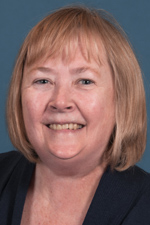
ColleenMcCann Kettles is the Director of the Workforce & Business Development Division at the FSEC Energy Research Center. She has more than 35 years’ experience in legal and policy research, program development and implementation in the fields of solar energy, energy efficiency, and alternative fuel vehicles. Her team engages in K-12 STEM Energy Education, solar energy system training and certification, and energy policy analysis, with a focus on local government sustainability opportunities. Colleen served as the Executive Director of the Florida Solar Energy Industries Association and established their Education and Research Foundation (FlaSEREF). She is a graduate of the University of Florida College of Law and is a member of the American Bar Association and the Florida Bar. Colleen represents FSEC on the Smart Electric Power Association, Solar Energy Industries Association, Interstate Renewable Energy Council, the Florida Solar Energy Industries Association, the Building Officials Association of Florida, Drive Electric Florida, and the Florida Energy Workforce Consortium. Her work focuses on U.N. Sustainable Development goals 7-13.[/col]
Kelly Kibler, Ph.D.
Kelly Kibler is an Assistant Professor of Water Resources Engineering in the Department of Civil, Environmental and Construction Engineering and affiliate faculty of UCF’s National Center for Integrated Coastal Research. Kibler heads the
Kibler Ecohydraulics Laboratory, leading research focused at coupled biological and physical variables in river and estuarine systems. Kibler’s group studies both natural hydrologic phenomena as well as waterways that are modified for human benefit such as dams, dredging, levies and hardened structures. Applications for Kibler’s research include development pathways and infrastructure that minimize ecosystem disruption and promote preservation or restoration of aquatic ecosystem services. Her work pertains to SDGs 6, 11 and 13.
Claire C. Knox, Ph.D.
Claire Knox, Ph.D., is an associate professor and the emergency management and homeland security program director in UCF’s School of Public Administration. Her research interests include environmental policy and management, Habermas’ critical theory and environmental vulnerability and disaster response. Knox’s interdisciplinary research applies a discursive theory lens to language underlying environmental and emergency management plans and policies. She is a board member and social media chair of ASPA’s Section on Environmental and Natural Resource Administration, a board member of ASPA’s Section for Emergency and Crisis Management and has also held leadership positions in multiple environmental, non-profit organizations that promote environmental sustainability. Her work supports Goal 11.
Patrice Kohl, Ph.D.
Patrice Kohl is an assistant professor of journalism in the Nicholson School of Communication. Her research interests cut across several disciplines including science and environmental communication, human dimensions of conservation, and science and technology studies. Her latest research examines the communication and socio-ethical implications of two trends in ecological and technological change—the emergence of novel ecosystems and recent proposals to gene edit wildlife populations as a tool for conservation. Her work focuses on sustainable development goals 11 and 13.
Richard Lapchick, Ph.D.
Richard Lapchick, is an eminent scholar, endowed chair and director of the DeVos Sport Business Management Program in the UCF College of Business. He is a human rights activist, pioneer for racial equality, internationally recognized expert on sports issues. Lapchick is often described as “the racial conscience of sport.” He remains president of the National Consortium for Academics and Sports and helped bring the NCAS national office to UCF. He heads diversity and inclusion initiatives, and focuses on combating sex trafficking. He is widely known for bringing different racial groups together to create positive workforce environments. His work supports Goals 8, 10, and 16.
Kate Mansfield, Ph.D.
Kate Mansfield is an Associate Professor and Director of the Marine Turtle Research Group at the University of Central Florida in the Department of Biology. Her research program focuses on sea turtle biology, ecology, behavior and conservation across all sea turtle life stages—from eggs to adults. Mansfield’s lab provides field-based educational and research opportunities to students and scientific advisory service to local, state and international science and management entities. Mansfield was a member of the most recent federal Loggerhead Turtle Expert Working Group, serves on the IUCN Marine Turtle Specialist Group and is a member of the international ICARUS Initiative Executive Board (
icarusinitiative.org). She created new international scientific partnerships with Projecto TAMAR in Brazil (
www.tamar.org.br) and is a Collaborative Partner with the Sargasso Sea Commission (
www.sargassoseacommission.org). Mansfield’s work supports SDGs 13 and 14.
Luis Martínez-Fernández, Ph.D.
Luis Martínez-Fernández is Professor of History in the UCF College of Arts and Humanities. His areas of expertise are Latin America, specially Cuba and Puerto Rico, Latinos in the United States and higher education. He is the author of over 50 scholarly articles, essays and book chapters. Martínez-Fernández is a consultant, media resource, Op Ed writer and public speaker on his fields of research and on contemporary Latino society and issues in K-12 and higher education. He has served on numerous boards, including the editorial board of Cuban Studies, the Board of Trustees of the College Board and the Advisory Board of the South Atlantic Humanities Center. His work supports Goal 11.
Talea Mayo, Ph.D.
Talea Mayo, Ph.D., is an assistant professor in the Department of Civil, Environmental and Construction Engineering at UCF. She is a member of the National Center for Integrated Coastal Research (UCF Coastal). Mayo specializes in coastal ocean modeling, with special interests in tides and hurricane storm surge modeling, flood risk analysis and data assimilation methods for state and parameter estimation of dynamical systems. Her work supports Goal 14.
Rudy McDaniel, Ph.D.
Rudy McDaniel, Ph.D., is a professor of digital media and the director of the School of Visual Arts and Design (SVAD). He pursues research that investigates how to use narrative and video games to motivate learning, create satisfying user experiences and promote social good. Nationally, he routinely reviews for major conferences in his field including ACM SIGDOC and Digital Humanities. Internationally, he judged the I/ITSEC Serious Games challenge and delivered papers and led workshops in China, Costa Rica, Ireland, and Russia. His work supports Goal 4.
Kevin Meehan, Ph.D.
Dr. Kevin Meehan is professor of English, director of the UCF Haitian Studies project, and specializes in Caribbean and US literature as well as climate change education for sustainable development. He is the author of People Get Ready: African American and Caribbean Cultural Exchange (Mississippi, 2009) and numerous essays, CDs and DVDs. His research has been supported with grants from National Science Foundation, National Endowment for the Humanities, US Department of Education, Organization of American States, UN Food and Agriculture Organization and the US Department of State. During the 2017-18 academic year, he was a Fulbright Scholar in St. Kitts-Nevis, hosted at the Clarence Fitzroy Bryant College, where he taught in the Agricultural Studies program and documented climate change adaptation through hydroponics and agroecology practices on small integrated and diversified farms. His research touches on SDGs 13, 14, and 15. Dr. Meehan is also an indie musician (
www.sugarcitymusic.com) who toured Germany, Belgium, and the Netherlands in June 2018. His work supports Goal 13.
William Moreto, Ph.D.
William D. Moreto is an assistant professor in the Department of Criminal Justice in the College of Community Innovation and Education. He received his Ph.D. from the Rutgers School of Criminal Justice in 2013. His research centers on incorporating a criminological and criminal justice perspective to the study of wildlife crime, wildlife law enforcement, and conservation science. Specifically, he utilizes an interdisciplinary and transdisciplinary approach to better understand the human dimensions of conservation science and policy by examining frontline perceptions, operations, and work conditions of rangers, as well as understanding the application of strategies meant to prevent or reduce wildlife crimes. He has collaborated with conservation practitioners and scientists from around the world and has conducted fieldwork in Nepal and Uganda, and along with the World Wide Fund for Nature (WWF), he has collected primary data from over 15 countries. His work focuses on sustainable development goals 8, 9, 15, 16, and 17.
Michael Mousseau, Ph.D.
Michael Mousseau, Ph.D., is a Professor of Political Science, College of Sciences. He has been a research fellow at the United Nations Studies Program, Yale University (2003); the Belfer Center International Security Program, Harvard University (2005 – 2006); and the Saltzman Institute of War and Peace Studies, Columbia University (2010-2011). His research has identified how socioeconomic conditions can affect values and institutions, development, and conflict, within and among nations. His work focuses on SDG 16.
Güneş Murat Tezcür (PhD, University of Michigan, 2005) is a social scientist studying political violence, politics of identity, and democratization with a focus on Iranian, Kurdish and Turkish human geography. He has published more than two dozen scholarly articles that appeared in journals such as American Political Science Review, Comparative Politics, Development and Change, Journal of Peace Research, Journal for the Scientific Study of Religion, Law and Society Review, Nationalities Papers, Party Politics, Perspectives on Politics, Politics & Gender, Political Research Quarterly, and Third World Quarterly. He is also the author of Muslim Reformers in Iran and Turkey: The Paradox of Moderation (University of Texas Press, 2010) and the editor of The Oxford Handbook of Turkish Politics (Oxford University Press, 2022) and Kurds and Yezidis in the Middle East: Shifting Identities, Borders, and the Experience of Minority Communities (IB Tauris, 2021). His research has been supported by external grants from a variety of sources including the National Science Foundation, the United States Institute of Peace, and the Harry Frank Guggenheim Foundation. He is currently working on a NSF-funded research project titled “Diversity in Linked Fate: Political Behavior and Opinions of Latinx Americans” in collaboration with Kenicia Wright.
David Norvell
David Norvell is the Assistant Vice President for Sustainability Initiatives within the division of Administration and Finance. His public service is focused on creating sustainable development, primarily in Latin America and the Caribbean. His passion is using available technologies and engineering to create solutions for global challenges through economic development in developing nations. He has developed solutions for water purification and renewable energy with storage for the single-family household. He also works in community development through partnership with existing small businesses in the countries he serves. His work focuses mostly on SDGs 6,7 and 8.
Fevzi Okumus, Ph.D.
Fevzi Okumus is the CFHLA Preeminent Chair Professor within the Hospitality Services Department at the University of Central Florida’s Rosen College of Hospitality Management. His research focuses on corporate social responsibility, green practices and diversity management in the hospitality and tourism industry. He has utilized both qualitative and quantitative research methods. His work focuses on sustainable development goals 5, 6, 11 and 13.
Jarrad Plante, Ed.D., CNP
Dr. Jarrad D. Plante, CNP most recently was the Programs Coordinator in both the Center for Community Partnerships and Center for Community Schools at the University of Central Florida. A Certified Nonprofit Professional, Dr. Plante received his doctorate of Education in Educational Leadership for Higher Education & Policy Studies from UCF. He is an Eagle Scout and an AmeriCorps*NCCC Alum. His research interests include domestic, international, and the institutionalization of service-learning, community engagement, and national service. As a community connector, Dr. Plante developed and leads the Central Florida Service Collective – a trust of service programs for the purpose of collaborating on service-related initiatives that impact the region. “Collaborative leadership results in collective impact.” His work supports SDGs 1, 2, 4, 11, 16, and 17.
Richard Plate, Ph.D.
Richard Plate is a lecturer in Environmental Studies and Interdisciplinary Studies who teaches the environmental studies cornerstone and capstone courses at UCF. His work focuses on how people learn and make decisions about complex social-ecological systems both as individuals and as communities, with topics including social learning, complexity, and collaborative adaptive management. This work connects to several SDGs, including 11, 12, 13, and 16.
Roberto Hugh Potter, Ph.D.
Roberto Hugh Potter is a Sociologist working at the intersections of justice and health systems. His research focuses on the organizations involved in preventing, reacting, and responding to victims and perpetrators of crimes such as human trafficking and illegal substance trafficking. He has taught at universities in Australia and the United States and conducted national and international programs and research during a decade with the Centers for Disease Control and Prevention. He has been with UCF since 2008. His work supports Goals 3, 5, and 16.
Jonathan M. Powell, Ph.D.
Jonathan Powell, Ph.D., is an assistant professor in the School of Politics, Security and International Affairs at UCF. His research and teaching interests are in the fields of international relations and comparative politics, particularly the dynamics related to conflict and democratization, with a special emphasis on the role civil-military relations plays in these processes. His research has been published in a number of outlets, including the Journal of Conflict Resolution, Journal of Peace Research, Democratization, Armed Forces & Society, Africa Spectrum and Studies in Comparative International Development. His work supports Goal 16.
Zhihua Qu, Ph.D.
Zhihua Qu, Ph.D., is a professor and chair of the Department of Electrical and Computer Engineering, as well as leader of the University Resilient, Intelligent and Sustainable Energy Systems (RISES) Cluster. His research ranges from power system stability, wide-area controls and their modular data-driven designs, self-organizing microgrids, distributed energy resources, distributed optimization, and cooperative control. Qu has contributed advances in plug-and-play operation of networked systems, distributed optimization, cooperative control and game-theoretical algorithms, and resilient networked controls against attack. He is also the Co-Director of Electric Vehicle Transportation Center, where he works to develop smart interfaces between electrical vehicles and electrical grid as well as autonomous vehicle technologies. His work supports Goals 7 and 9.
Bernardo Ramirez, M.D. MBA
Bernardo Ramirez is the Director of Global Health Initiatives of the School of Global Health Management and Informatics at the University of Central Florida, where he is an Associate Professor teaching International Health Systems; Quality Improvement; Leadership; and Strategic Planning in the graduate and undergraduate programs. He has been the Director of the Executive Master’s in Health Administration and the Bachelor’s in Science in Health Services Administration programs.
Dr. Ramirez has experience in more than 60 countries as health services Administrator and consultant in public and private organizations from the hospital departmental level to health systems reform, planning and policy at the Ministry of Health level. He has directed and conducted management training for health services executives and managers under the auspices of international development agencies and organizations, such as USAID, The Pan-American Health Organization, The World Bank, the Interamerican Development Bank and The W.K. Kellogg Foundation.
Contact Information: Bernardo.Ramirez@ucf.edu
Profile and Full CV: https://ccie.ucf.edu/profile/bernardo-ramirez/
Debra Reinhart, Ph.D.
Debra Reinhart is a Pegasus Professor of Environmental Engineering and Associate Vice President for Research and Scholarship. Her research and teaching focuses on the sustainable management of solid waste. Her work with landfills to minimize adverse environmental impacts from solid waste management has produced 70 papers, four books and five patents. She has supervised to graduation 75 graduate students from all over the world. Her research aligns with SDGs 6, 11 and 12.
Teddy Reynolds, Ph.D.
Ted Reynolds, Ph.D., serves as the Global Connections Senior Research Fellow in Terrorism Studies for the Office of the Special Assistant to the President for Global Perspectives at the University of Central Florida, where he is also a professor. His research utilizes qualitative and quantitative research methods to learn more regarding terrorist/extremist radicalization and participation, specifically within social media and other computer mediated communication (CMC) environments. Apart from his work at UCF, Reynolds also serves as a subject matter expert and consultant on terrorist/extremist use of social media and CMC in the radicalization, recruitment, and mobilization process. His work supports Goal 16.
Fernando Rivera, Ph.D.
Fernando I. Rivera is an Associate Professor of Sociology. His interests in sustainability arise from his work in disaster resilience and coastal restoration. In order to scale these efforts to the global level he is pursuing multi-stakeholder partnerships to promote capacity building in several countries, including Puerto Rico and Nicaragua. His work supports Goals 11 and 14.
Maria Santana, Ph.D.
M.C. Santana is an Associate Professor in the College of Arts and Humanities and a faculty affiliate with the Women’s and Gender Studies program which she directs since 2009. Her research focuses on women’s and girls roles in society. She uses methods from the social sciences and humanities to explain activism, pedagogical changes such as direct impact service learning projects and historical pieces on the development of gender in society. Her work focuses on sustainable development goals 5, 10 and 16.
Janan Smither, Ph.D.
Janan Smither, Ph.D., is a professor in the psychology department at UCF. Her areas of interest are in technology and aging. She is interested in conducting research investigating the use and design of technologies for an aging population. Her work supports Goal 3.
Sonia Stephens, Ph.D.
Sonia Stephens is an Assistant Professor of English and Texts and Technology, and a faculty affiliate of UCF’s National Center for Integrated Coastal Research. Her research focuses on science communication using visual and interactive media, including climate change and sea-level rise risk communication and understanding coastal community perceptions of resilience. She uses methods from the social sciences and humanities to develop risk communication tools, examine how technology affects individuals’ understanding of science and nature, and make visual communication products helpful to users. Her work focuses on SDGs 11 and 13.
Kelly Stevens, Ph.D.
Dr. Stevens is an Assistant Professor in the School of Public Administration, and member of the Resilient, Intelligent and Sustainable Energy Systems research cluster. She conducts empirical research on a range of interdisciplinary topics in energy, environmental, and research policy. Her latest research focuses on innovation and integration of clean energy technologies and the smart grid. Her work supports sustainable development goals 7, 9, 11 and 13.
Stella Sung, D.M.A
Stella Sung is a Pegasus Professor, University Trustees Chair Professor, and Director of UCF’s Center for Research and Education in Arts, Technology, and Entertainment (CREATE). CREATE is located in downtown Orlando at the UCF Center for Emerging Media, and conducts multidisciplinary projects and research in a variety of topics. As a outreach arm from the College of Arts and Humanities, CREATE serves the community at large in a number of ways, including educational and creative opportunities for k-12 students through a number of major partnerships throughout Central Florida. Dr. Sung is also an active composer and served as Composer-in-Residence for the Orlando Philharmonic Orchestra and the Dayton (OH) Performing Arts Alliance. Her compositions are performed throughout the U.S and abroad, and commissions and performances have been by major symphony orchestras as well as by soloists and ensembles. Her most recent orchestral work focuses upon marine life conservancy. Dr. Sung’s work focuses up goals 4, 14, and 17.
Judit Szente, Ph.D.
Judit Szente is Professor and Coordinator of the Master of Science in Early Childhood Development and Education program and the Education Ph.D. Early Childhood Track at UCF. Szente has served as a preschool teacher educating 3- to 5-year-olds from over 10 different countries. She also taught at the upper early childhood level and worked with economically disadvantaged students in Buffalo, NY. Szente has participated in international teaching/learning programs in Hungary, Bulgaria, Denmark, England, Finland, the United States, Ethiopia, Japan, Italy, and completed the United Nations Summer Study program. She is an Editorial Board member of the Journal of Early Childhood Teacher Education and the Early Childhood Education Journal. From Fall 2007, Szente has served as a United Nations Representative of the Association for Childhood Education International (ACEI). Her work supports Goal 4.
Omer Tatari, Ph.D.
Omer Tatari, Ph.D., serves as the associate professor in UCF’s Department of Civil, Environmental and Construction Engineering. His research focuses on integrated sustainability assessment. He concentrates on systematically analyzing the social, environmental and economic aspects of engineered systems from a life cycle perspective. Tatari is the subject editor of the International Journal of Life Cycle Assessment. He is also the co-director of the Electric Vehicle Transportation Center. His work supports Goal 9.
Thomas Wahl, Ph.D.
Through Thomas Wahl’s research he connects engineering and various science disciplines (e.g., oceanography, hydrology, meteorology, climatology) to better understand the vulnerability of coastal societies, built infrastructure and fragile ecosystems under climate change conditions. He studies changes in coastal sea levels, ocean waves and freshwater flows and the associated impacts to support the development of sustainable and resilient adaptation strategies. His work is directly related to SDGs 11, 13, and 14. Wahl is an Assistant Professor in the UCF College of Engineering and Computer Science, and a faculty affiliate of UCF’s National Center for Coastal Research.
John Walker, Ph.D.
John Walker joined the UCF faculty in 2006 and is an Associate Professor in the Department of Anthropology, specializing in archaeology. His research interests include political and social organization, landscape archaeology, common pool resources, the relationship between nature and culture, complex societies and agricultural intensification in the Amazon Basin, the Andes and Bolivia. Walker currently works in the Amazon Basin and studies how pre-Columbian farmers engineered that environment, showing that the pristine Amazon has in fact been managed and cultivated for thousands of years. He earned his Ph.D. in 1999 at the University of Pennsylvania. His work supports Goals 11 and 14.
Linda Walters, Ph.D.
Linda Walters is a Pegasus Professor of Biology in the College of Sciences and has been on the faculty for 21 years. During this time, her research and community engagement has focused on estuarine and coral reef ecology, resilience, sustainability and restoration. Highlights include oyster reef restoration and living shoreline stabilization projects that have engaged over 59,000 volunteers and the development and subsequent free distribution of eight children’s story books on marine conservation topics ranging from sea-level rise to invasive species transported via the aquarium hobbyist industry to boat wake impacts on oyster reefs. Her work supports Goal 14.
Dingbao Wang, Ph.D.
Dingbao Wang, Ph.D., is an assistant professor at the Department of Civil, Environmental and Construction Engineering at UCF. His research interests include hydrology, water resources systems, water resources engineering, GIS, LiDAR, groundwater hydrology, sea-level rise and environmental sustainability. Apart from that, he also serves as an advisor for the student chapters of Engineers Without Borders and American Water Resources Association at UCF. His work supports Goals 6 and 9.
Yara Watson
Yara Watson is a Sustainability and Outreach Coordinator for the Office of Sustainability Initiatives at the University of Central Florida. As a coordinator, she drives the reporting, outreach, and marketing components of the office and supports the development of long and short-term campus sustainability objectives. With a goal of fostering a culture of sustainability among UCF students, faculty and staff, Watson directs campus sustainability programming such as the Annual Kill-A-Watt competition, workshops, documentary screenings and guest speakers. She also manages the campus greenhouse gas inventory and AASHE’s Sustainability Tracking, Assessment & Rating System (STARS). Watson works to empower UCF community members to integrate sustainability into both work and play, challenging every Knight to live as a healthy, happy and productive steward of the Earth. Her work supports Goal 17.
John Weischampel, Ph.D.
John Weishampel, Ph.D., is the professor and associate dean of UCF’s College of Graduate Studies. His primary research interest is in the field of landscape ecology, particularly how landscape pattern influences ecological processes and biodiversity. He explores how the interplay between abiotic conditions (e.g., habitat structure, natural and anthropogenic disturbance regimes) and biotic processes (e.g., competition, dispersal, growth, succession) governs the behavior of plants and animals at landscape scales. One emphasis of his research is to use models, interfaced with remote sensing from satellites, other airborne instruments and geographic information systems (GIS), to explore spatial properties of ecological systems to better understand compositional, structural and functional biodiversity in terrestrial, freshwater and marine systems. His work supports Goals 14 and 15.
Tracy Wharton, Ph.D.
Tracy Wharton is an Assistant Professor in the UCF College of Health and Public Affairs. She has an interest in empowerment of marginalized populations, with a focus on alleviation of poverty and inequality and promoting healthcare access and quality of care for communities. As a female social scientist, she seeks information regarding how to support gender equality and education for women and girls as women are three times as likely to live in poverty later in life as a result of caregiving activities in adulthood and unequal opportunities for pay throughout their lives. Her work relates to SDGs 1, 3, 10 and 16.
Bruce M. Wilson, Ph.D.
Bruce M. Wilson is a Professor of Political Science at the University of Central Florida and Senior Researcher at the Chr. Michelsen Institute, Bergen, Norway. He is principal investigator for a major Norwegian Research Council grant on the “Human Right to Water.” His research on Latin American judicial politics has appeared in numerous leading peer-reviewed journals. His most recent book is Courts and Power in Latin America and Africa (Palgrave, 2010). His work focuses on SDGs 5, 6 and 13.
Mark A. Winton, Ph.D.
Dr. Mark A. Winton is an Associate Lecturer with the Department of Criminal Justice at the University of Central Florida. He teaches various courses including Criminal Profiling, Serial Murder, Genocide, Sex Crimes, Hate Crimes, Mental Disorders and Crime, and Violent Crimes and Criminals. He has co-authored two books and published articles in Homicide Studies, International Journal of Public Policy, The Qualitative Report, Criminal Justice Review, Aggression and Violent Behavior, Child Abuse and Neglect, and the International Journal of Group Psychotherapy. He was also interviewed for the documentary “Why They Kill: The Creation of Dangerous Violent Criminals.” His recent research focuses on theories used to explain genocides and sexual violence and trafficking during genocides. His work focuses on SDGs 5 and 16.
Graham Worthy, Ph.D.
Graham Worthy is a Pegasus Professor and Chair of the Department of Biology at UCF. He has over 35 years of experience examining the physiological ecology of a variety of wide marine mammal species. The ultimate goal of his research program is to better understand marine ecosystem function, and ultimately ocean health, by examining how these species respond to natural and anthropogenic perturbations. He takes a multidisciplinary, integrative approach that aims to determine the ecophysiological constraints dictated by current conditions and then attempt to interpret the impacts of future environmental change. For conservation strategies to be successful it is critical to understand the physiological responses of organisms to their changing environment and thereby develop an understanding of what the conservation problems and suggest potential solutions. This understanding can then be integrated into management decisions and policy development but it requires a multi-disciplinary approach. That recognition led him to create and become the Director of the UCF National Center for Integrated Coastal Research. Dr. Worthy’s focus is on SDGs 11,12,13,14 and 15.
Chrysalis L. Wright, Ph.D.
Chrysalis Wright, Ph.D, is an associate lecturer of psychology at UCF. Wright also coordinates the Honors in the Major program for the psychology department, and is the College of Sciences’ representative on the Honors Committee of the Faculty Senate. Her research centers around media and technological influences on development and behavior. She is also interested in academic achievement and educational trajectories of immigrant and nontraditional students. Outside of UCF, Wright is the secretary of Division 46 at the Society for Media Psychology & Technology and the membership and governance outreach representative for the Committee on Early Career Psychologists of the American Psychological Association. Her work supports Goal 4.
Asli Cennet Yalim, Ph.D.
Asli Cennet Yalim, Ph.D., is an Assistant Professor in the School of Social Work at UCF. Her research interests include mental health and psychosocial wellbeing of refugees, forced migration in the Middle East, and resilience among displaced populations. She uses community-based participatory research and transformative mixed-methods approach to maximize the benefits of direct engagement with members of a culturally diverse group, recognition of power differences, and shared decision-making. Her work aligns with goals 3, 10, 16, and 17.
Cherie Yestrebsky, Ph.D.
Cherie Yestrebsky, Ph.D., is a professor at UCF and the department chair of chemistry. Her research involves materials development for abiotic environmental remediation and the reaction mechanisms of contaminants with remediation materials. Her work has included studies of many types of compounds, including polycyclic aromatic hydrocarbons, polychlorinated biphenyls, polybrominated diphenyl ethers, chlorinated aliphatics, halogenated pesticides and energetic materials. These materials can be found in natural waters, soils, aquifers and in building materials thus creating interesting and challenging scientific and remediation problems. Her work supports Goals 14 and 15.


